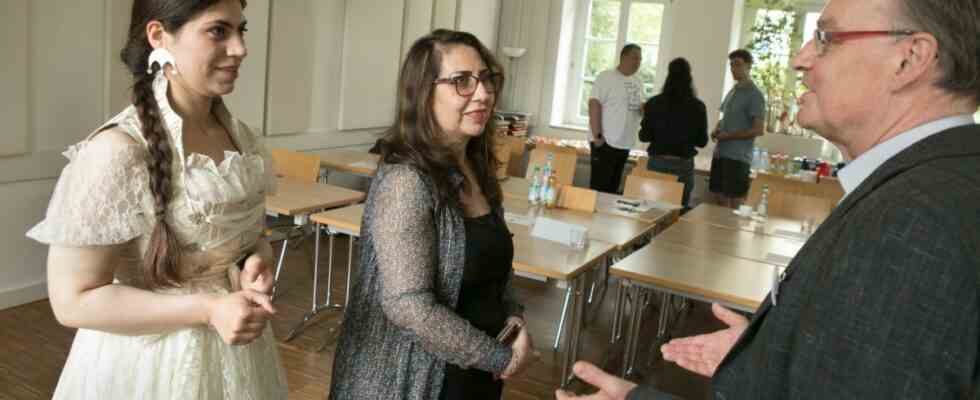The quiet seismographs of the city live at Westendstraße 68. There is hardly any other place where social developments come to light in such a bundle as in the self-help center Munich (SHZ) based in the Westend: Relatives of conspiracy theorists form a group here, survivors of those who died from Corona, Uyghur cultural workers or people who often rarely or always diseases or addictions that occur more frequently, be it fatigue syndrome or media addiction. On Saturday, July 9, many of them will be loud and visible: 60 of these initiatives will present themselves on Marienplatz between 10:30 a.m. and 4:30 p.m. at the Munich Self-Help Day.
Finally, says the managing director of the center, Klaus Grothe-Bortlik, when presenting the program in-house, it is once again becoming publicly and centrally perceptible. Due to the pandemic, the self-help day can only take place again after a three-year forced break. In the center itself, where 260 groups meet regularly, in March 2020 the door slammed from one day to the next. And stayed closed for a very long time. The restrictions were only lifted two months ago. “We also have a lot of older people in the groups, and it was too much for them to keep in touch,” says Grothe-Bortlik. circles dissolved. But new ones also formed. Not only because Corona set a new topic in many different ways.
Last year the helpers counted more than 2000 consultations and mediations
“We are the contact point here for people who have a concern,” says Mirjam Unverdorben-Beil, project manager of the self-help day. Advice is not only given on content, but also on founding a group, public relations work or financial support (www.shz.muenchen.de). Last year, the helpers counted more than 2000 consultations and placements in the entire portfolio of topics, in which, in addition to health, the environment, migration, mental illnesses and life crises also play a central role and were the most in demand at 41 percent in 2021.
Unverdorben-Beil emphasizes that the voluntary associations, which act in a self-organized manner, are exclusively “a supplement to professional and medical help”. You can’t replace them. There are subsidies for the work of the SHZ from both the health insurance companies and the state capital. The patron of the self-help day this time is Mayor Katrin Habenschaden (Greens).
The musicians Mohamad Hammami (percussion) and Aghiad Alsagher on the oud, the oriental lute, stand for the rich Arabic culture.
(Photo: Florian Peljak)
The desire to create and art are also ideal for giving people support and content in crisis situations. Yusir Alshorofey and Luma Afandy talk about it at the presentation of the program. Since 2014, her group “Creative and Self-Confident” has been mainly made up of women who have come to Munich from all over the world. With manual work and singing, they have freed themselves “from everyday life, from illness, depression and loneliness”. Afandy, who studied art at the Baghdad Academy, speaks of “handiwork as a calming factor for the soul”.
Next to her sits Aghiad Alsagher. He studied violin in Damascus, Regensburg and Munich. With Mohamad Hammami on percussion, he will play a famous Egyptian folk tune at the end of the press conference. “Naoua” is the name of the choir of the two, “with which we want to show that we have a rich Arabic culture”. The members come from very different Arab countries. Self-confident art of the self-helping will also be seen and heard in abundance on July 9th at Marienplatz (www.muenchner- selbsthilfetag.de).

